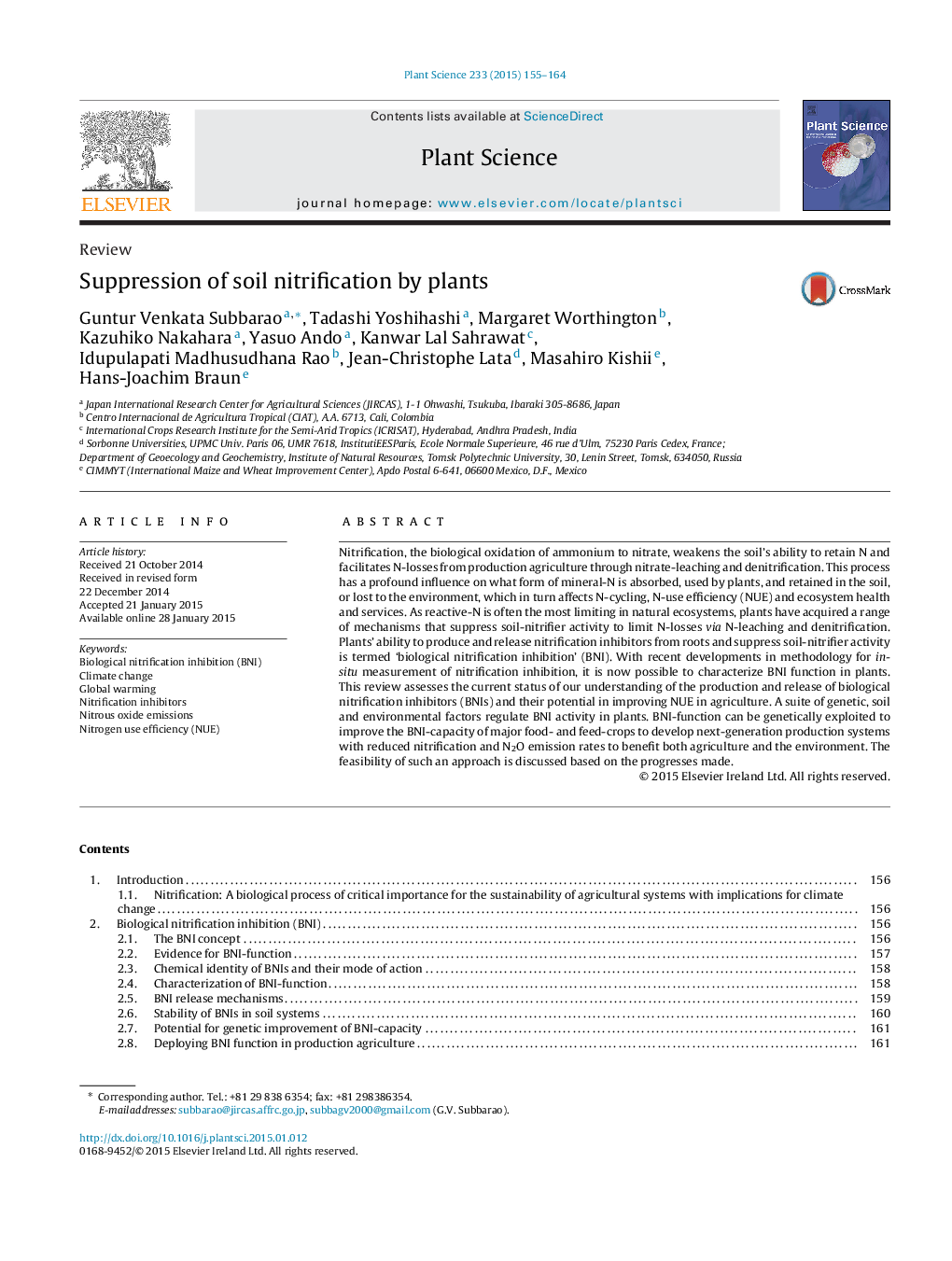| کد مقاله | کد نشریه | سال انتشار | مقاله انگلیسی | نسخه تمام متن |
|---|---|---|---|---|
| 8357840 | 1542056 | 2015 | 10 صفحه PDF | دانلود رایگان |
عنوان انگلیسی مقاله ISI
Suppression of soil nitrification by plants
ترجمه فارسی عنوان
سرکوب نیتریفیکاسیون خاک توسط گیاهان
دانلود مقاله + سفارش ترجمه
دانلود مقاله ISI انگلیسی
رایگان برای ایرانیان
کلمات کلیدی
موضوعات مرتبط
علوم زیستی و بیوفناوری
علوم کشاورزی و بیولوژیک
دانش گیاه شناسی
چکیده انگلیسی
Nitrification, the biological oxidation of ammonium to nitrate, weakens the soil's ability to retain N and facilitates N-losses from production agriculture through nitrate-leaching and denitrification. This process has a profound influence on what form of mineral-N is absorbed, used by plants, and retained in the soil, or lost to the environment, which in turn affects N-cycling, N-use efficiency (NUE) and ecosystem health and services. As reactive-N is often the most limiting in natural ecosystems, plants have acquired a range of mechanisms that suppress soil-nitrifier activity to limit N-losses via N-leaching and denitrification. Plants' ability to produce and release nitrification inhibitors from roots and suppress soil-nitrifier activity is termed 'biological nitrification inhibition' (BNI). With recent developments in methodology for in-situ measurement of nitrification inhibition, it is now possible to characterize BNI function in plants. This review assesses the current status of our understanding of the production and release of biological nitrification inhibitors (BNIs) and their potential in improving NUE in agriculture. A suite of genetic, soil and environmental factors regulate BNI activity in plants. BNI-function can be genetically exploited to improve the BNI-capacity of major food- and feed-crops to develop next-generation production systems with reduced nitrification and N2O emission rates to benefit both agriculture and the environment. The feasibility of such an approach is discussed based on the progresses made.
ناشر
Database: Elsevier - ScienceDirect (ساینس دایرکت)
Journal: Plant Science - Volume 233, April 2015, Pages 155-164
Journal: Plant Science - Volume 233, April 2015, Pages 155-164
نویسندگان
Guntur Venkata Subbarao, Tadashi Yoshihashi, Margaret Worthington, Kazuhiko Nakahara, Yasuo Ando, Kanwar Lal Sahrawat, Idupulapati Madhusudhana Rao, Jean-Christophe Lata, Masahiro Kishii, Hans-Joachim Braun,
